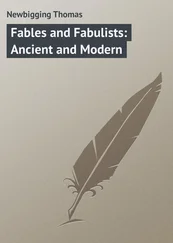Thomas Burke - Out and About London
Здесь есть возможность читать онлайн «Thomas Burke - Out and About London» — ознакомительный отрывок электронной книги совершенно бесплатно, а после прочтения отрывка купить полную версию. В некоторых случаях можно слушать аудио, скачать через торрент в формате fb2 и присутствует краткое содержание. Жанр: foreign_antique, foreign_prose, на английском языке. Описание произведения, (предисловие) а так же отзывы посетителей доступны на портале библиотеки ЛибКат.
- Название:Out and About London
- Автор:
- Жанр:
- Год:неизвестен
- ISBN:нет данных
- Рейтинг книги:5 / 5. Голосов: 1
-
Избранное:Добавить в избранное
- Отзывы:
-
Ваша оценка:
- 100
- 1
- 2
- 3
- 4
- 5
Out and About London: краткое содержание, описание и аннотация
Предлагаем к чтению аннотацию, описание, краткое содержание или предисловие (зависит от того, что написал сам автор книги «Out and About London»). Если вы не нашли необходимую информацию о книге — напишите в комментариях, мы постараемся отыскать её.
Out and About London — читать онлайн ознакомительный отрывок
Ниже представлен текст книги, разбитый по страницам. Система сохранения места последней прочитанной страницы, позволяет с удобством читать онлайн бесплатно книгу «Out and About London», без необходимости каждый раз заново искать на чём Вы остановились. Поставьте закладку, и сможете в любой момент перейти на страницу, на которой закончили чтение.
Интервал:
Закладка:
We lounged over coffee and liqueurs, and then strolled up the Avenue and called at the establishment of "Mr. Francis Downman," that most discriminating and charming of wine-merchants – discriminating because he has given his life to the study of wines; charming because, away from his wine-cellars and in his true name, he is a novelist whose books, so lit with sparkle and espièglerie, have carried fair breezes into many a dusty heart. If you have ever visited that old Queen Anne House in Dean Street and glanced at "Mr. Downman's" Bulletins, you will realize at once that here is no ordinary vendor of wines. Wine to "Mr. Downman" is a serious matter. Opening a bottle is an exquisite ceremony; drinking is a sacrament. I once lunched with "Mr. Downman" in his cool Dutch kitchen "over the shop," and each course was lovingly cooked and served by his own hands, with suitable wines and liqueurs. It was a lesson in simple and courtly living. How pleasant the homes of England might be if our housewives would pay a little attention to correct kitchen and table amenities. "Mr. Downman" would be a public benefactor if he would open a School of Kitchen Wisdom where the little suburban wife might sit at his feet and learn of him. Yes, I know that there are many schools of cookery and housewifery, but these places are managed by people who only know how to cook. "Mr. Downman" would bring to the task all those little elegancies which make a dinner not merely satisfactory, but a refinement of joy. Feeding, like all functions of the human body, is a vulgar business anyway, but here is a man who can raise it to the dignity of a rite.
Further, he has shown us, in those "Bulletins," how to turn advertising into one of the minor arts. Perhaps of all the enormities which the nineteenth century perpetrated in its efforts to make life unbearable, the greatest was the debasing of trade. In the eighteenth century trade was a serene occupation, as you may see by glancing at the files of the old Gentleman's Magazine , Mirror , Spectator , where announcements of goods and merchandise were made in fine flowing English. Advertisement was then a matter of grace, of flourish and address; for people had leisure in which to receive gradual impressions. The merchants of that day did not scream at you; they sat with you over the fire, and held you in pleasant converse, sometimes, in their talk, throwing off some persiflage or apothegm that has become immortal. There was a Mr. George Farr, a grocer, circa 1750, who issued some excellent trade tickets from the "Beehive and Three Sugar Loaves"; little cards, embellished with dainty woodcuts that bring to mind an Elzevir bookplate; the pictures a sheer joy to look upon, the prose a delicate pomp of words that delights the ear. Then there were the trade cards of the Goldsmiths' and Silversmiths' Company of the eighteenth century, each one the production of a true artist (Hogarth did several), as well as the tobacco advertisements of the same period. In the latter case, not only were the cards works of art, but poetry was wooed and won for the cause. Near the old Surrey Theatre lived one John Mackey, who sang the praise of his wares in rhyme and issued playbills purporting to announce new tragedies under such titles as My Snuff-Box , The Indian Weed , The True Friend, or Arrivals from Havannah , The Last Pinch , and so on. The cabinet-makers of the eighteenth century also found time to indite delicious morsels of prose and prepare quaint and harmonious pictures for the delight of their patrons. Mr. Chippendale and Mr. Heppelwhite were most industrious in this direction, and the Society of Upholsterers and Cabinet Makers issued, in 1765, a work now very much sought after: The Cabinet and Chair Makers' Real Friend and Companion .
But then, snorting and hustling like a provincial alderman, in came the nineteenth century, with its gospel of Speed-up; and the result was that fair fields and stately streets scream harshly in your ears at every turn: —
This sort of thing continued for many decades, when, happily, its potency became attenuated, and some genius discovered that people were not always responsive to screams; that, after all, the old way was better.
Thus literature returned and linked arms once again with trade. Partly, the circularizing dodge was responsible for this, since, in the circular, the bald statement was hardly good enough. It was found that subtle means must be employed if you are striving to catch a man's attention at the breakfast-table, when sleep still crawls like a slug about the brain and temper is uncertain. Nothing is so riling to the educated person as to have ungrammatical circulars dropped in his letter-box. Their effect is that he heartily detests the article advertised, not because he has tried it and found it wanting, but because of the split infinitive or the infirm phrase. So the whoop and the yell gave place to the full-flowered essay sprigged with the considered phrase. And to my mind the best of all contemporary efforts in this direction are "Mr. Downman's" "Bulletins," of which I have a complete set. Here a fastidious pen is delightfully employed; and not the pen only, but the taste of the book-lover. Indeed, they are lovable productions, having all the gracious response to the eye and the touch of Mr. Arthur Humphreys' anthologies of seventeenth-century poetry. Everything – format, type, paper, and Elian style – breathes an air of serendipity.
The first part of each "Bulletin" consists of a number of essays on questions pertaining to wine and wine-drinking; the second half is a catalogue of "Mr. Downman's" wines and their current prices, with specimen labels, which are such gentle harmonies of line and colour that one is tempted to start collecting them. "Mr. Downman" opens his addresses in the grand manner: —
And if you love your Elia, then you must read "Mr. Downman" on Decanters and Decanting, On Corkscrews, On How to Drink Wine, On Bottling, On Patriotism and Wines, On the Suiting of Food to Wine, On Wines at Picnics. His sharp-flavoured prose, full of sly nuances and coquettish conceits, has all the tone of the best claret. Hear him on salads: —
This is the time of salads. And a good salad means good oil. It also means good vinegar, or a fresh and juicy lime or lemon. Now the Almighty has given us better tools for salad-making than any wooden fork or spoon. In conditions of homely intimacy, a salad-maker, when all is ready, will wash his hands well and long as the moment approaches for serving the bowl. He will shun common or perfumed soaps, and will use nothing but a soap made from olive oil. Having dried his hands perfectly on a warm, clean towel, he will finally whisk the cup of dressing into homogeneity, will pour its contents over the salad, and will immediately proceed to wring the leaves in the liquid as a washerwoman wrings clothes in soapy water. (How horrid!) In doing this he will spoil the appearance of come of the leaves, but he will have a salad fit for the gods.
After sampling a noble Madeira in his cellar cool, in William and Mary Yard, we resumed our crawl, and in the black evening made a tour of other of the old places. At the Café de l'Europe, Mr. Jacobs, leader of the band, played for us a few old waltzes and morceaux reeking of the spirit of 1912; but even he did not handle the fiddle, or seem to care to handle it, in his old happy manner. Like the rest of us, I suppose, he felt that it wasn't worth while; it didn't matter. We called at the "Gambrinus," now owned by a Belgian; at the old "Sceptre," for a coupon's worth of boiled beef; and so to the Café Royal.
Читать дальшеИнтервал:
Закладка:
Похожие книги на «Out and About London»
Представляем Вашему вниманию похожие книги на «Out and About London» списком для выбора. Мы отобрали схожую по названию и смыслу литературу в надежде предоставить читателям больше вариантов отыскать новые, интересные, ещё непрочитанные произведения.
Обсуждение, отзывы о книге «Out and About London» и просто собственные мнения читателей. Оставьте ваши комментарии, напишите, что Вы думаете о произведении, его смысле или главных героях. Укажите что конкретно понравилось, а что нет, и почему Вы так считаете.












